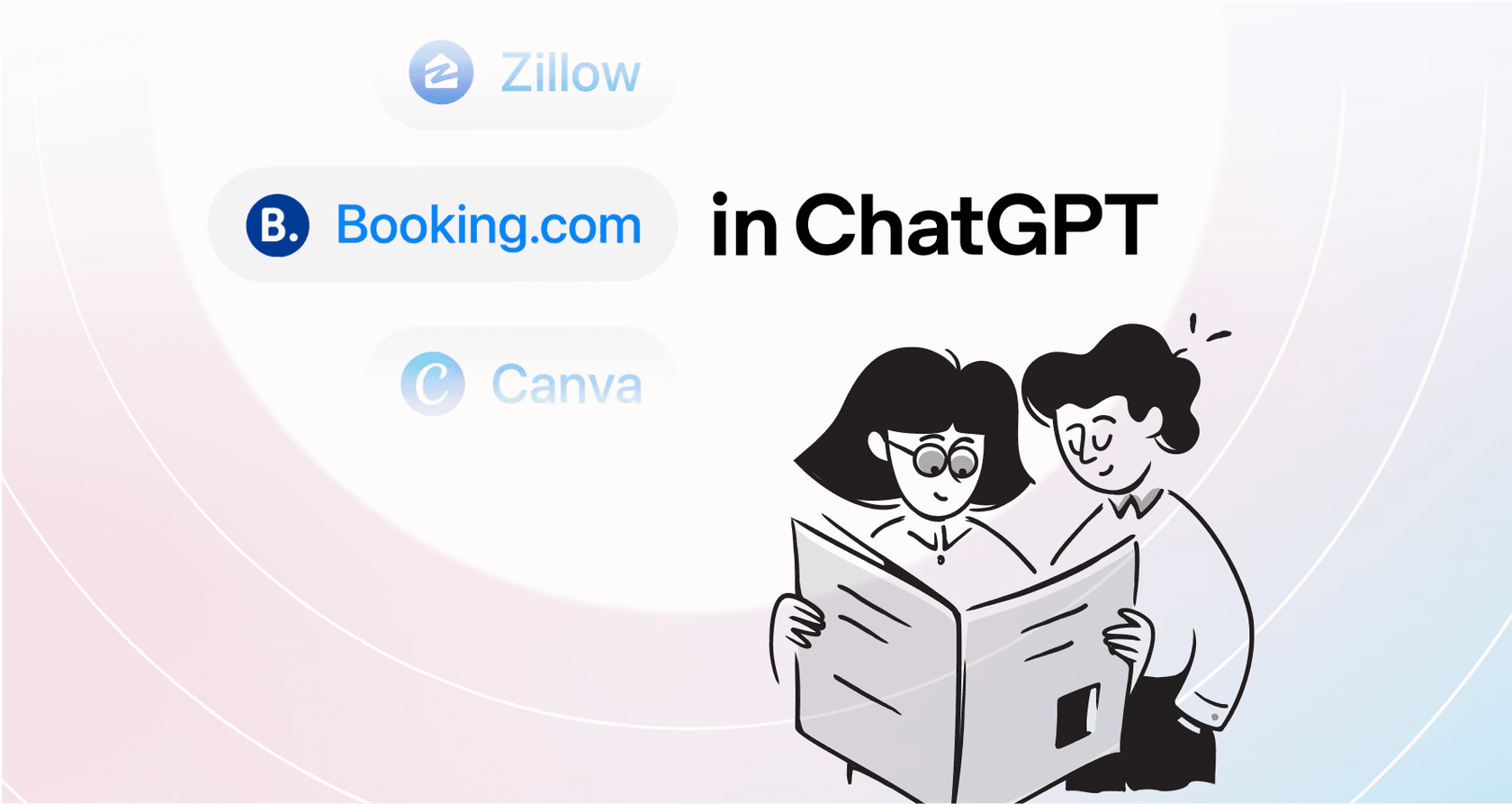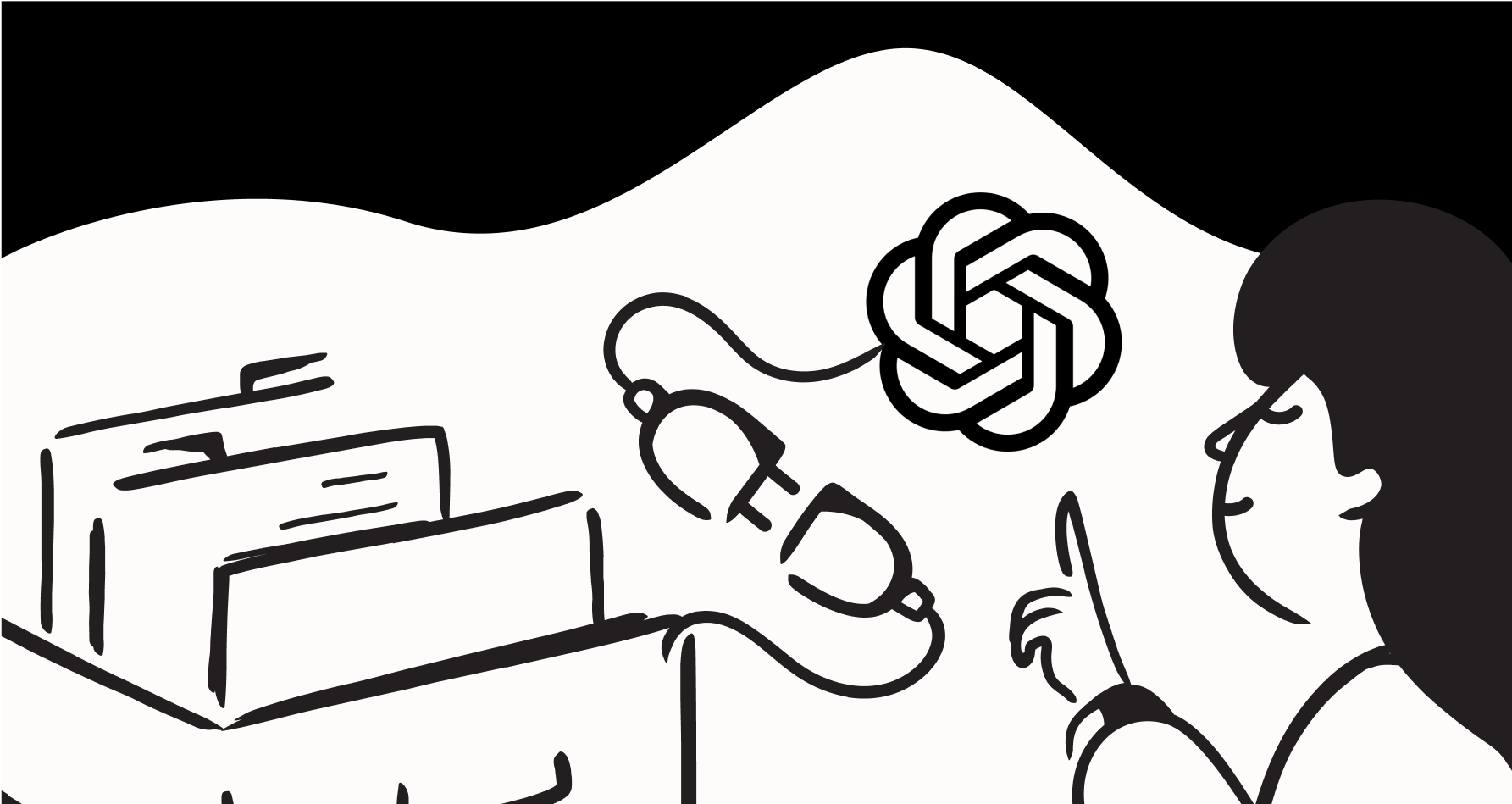
Let's be honest, you've seen the headlines about Gemini and ChatGPT. You've probably even asked one of them to write a clever email or settle a debate about a movie. These AI models from Google and OpenAI are incredibly powerful and have changed the game for general tasks.
But what happens when you try to plug one of these brilliant, all-purpose tools into a specialized business function? When it comes to customer support or internal IT, using a generic AI can feel like trying to fit a square peg in a round hole. It can lead to weird answers, frustrated customers, and more cleanup work for your team.
This guide will cut through the hype of the Gemini vs. ChatGPT debate. We'll look at what they do well, where they stumble in a business setting, and why a purpose-built AI platform is often the smarter, safer bet for the jobs that really matter.
Gemini vs ChatGPT: So, what are they anyway?
Before we get into the weeds, let's quickly get on the same page. Think of these models as brilliant interns who have read the entire public internet. They know a ton of stuff, but they've never seen your company's internal handbook.
Google Gemini is Google's family of AI models. It’s multimodal, which is a fancy way of saying it can understand and work with text, images, audio, and video. As you’d guess, it's tightly woven into the Google ecosystem, powering many of their AI features.
OpenAI's ChatGPT is the famous chatbot that really brought generative AI into the mainstream. It’s powered by OpenAI's GPT models and is fantastic at holding natural conversations, writing everything from poetry to code, and tackling a huge range of creative and analytical jobs.
Both are designed to be smart, versatile assistants, but they have different strengths that become obvious when you start to use them.
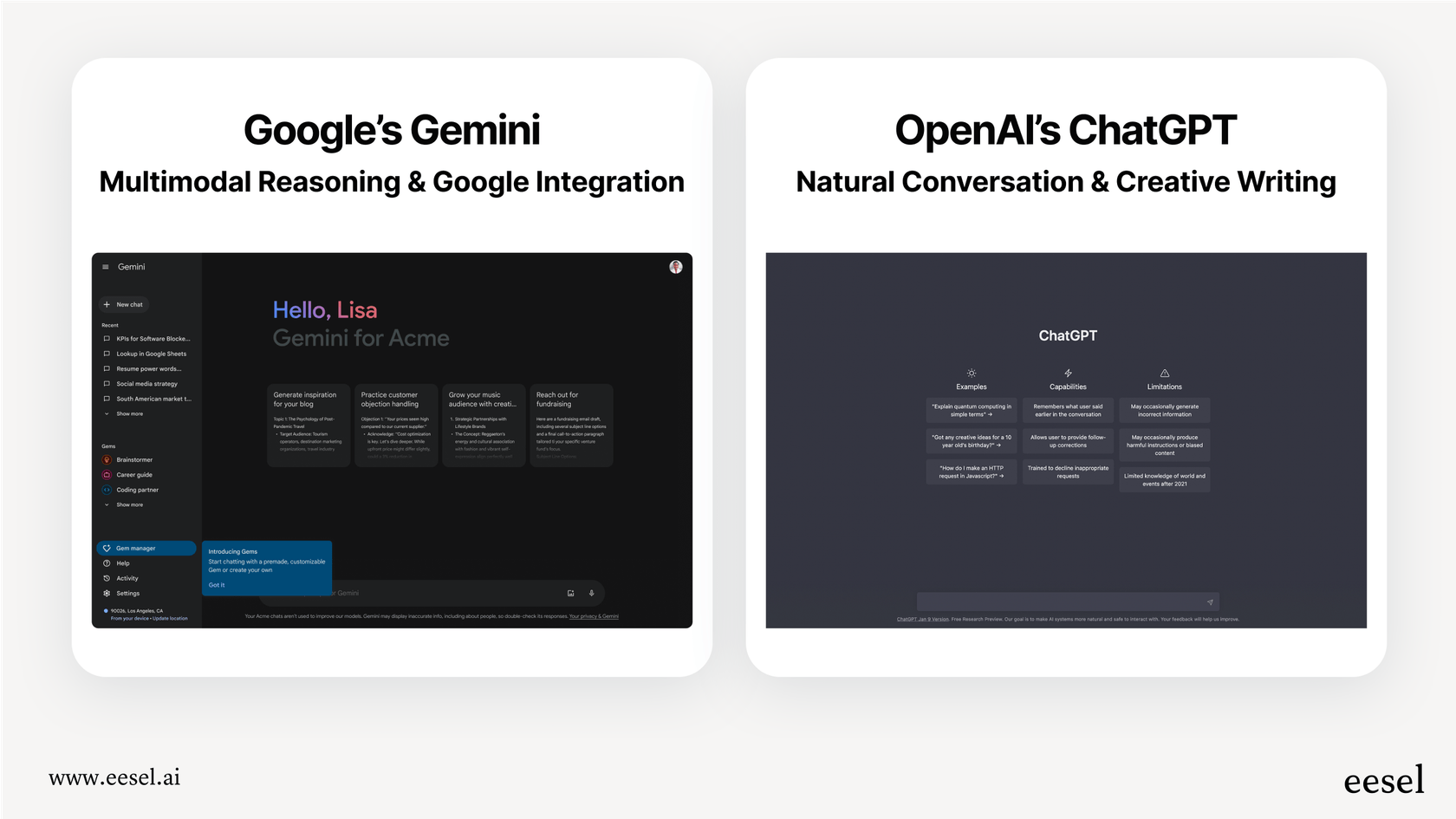
Gemini vs ChatGPT: A head-to-head comparison
Alright, let's put these two side-by-side and see how they stack up for common business needs.
Gemini vs ChatGPT: Reasoning and creative tasks
Both models are seriously impressive when it comes to thinking and creating, but they have their own personalities.
From what many users have found, ChatGPT often wins for creative writing. If you need to brainstorm some marketing copy or draft a blog post with a specific tone, it has a certain flair. It’s great at generating unique, long-form content that feels surprisingly human.
Gemini, on the other hand, often excels at logical reasoning. Thanks to its deep connection with Google's search index, it’s a powerhouse at gathering information from different places and presenting it as a clear, fact-based summary.
How Gemini vs ChatGPT get their information
This is a big one. Gemini can access the web in real-time through Google Search, which means it can give you up-to-the-minute answers on current events. ChatGPT can also browse the web, but its foundation is the massive dataset it was trained on.
Here’s the catch for any business: their knowledge is almost entirely based on public internet data. Ask them about the capital of France, and you'll get a perfect answer. Ask them about your company's new return policy or a bug specific to your software, and you'll get a blank stare (or worse, a confident but completely wrong answer). For business-specific questions, they're starting from zero.
Gemini vs ChatGPT on working with images, video, and files
Both models have gone way beyond just text. They are now "multimodal," meaning they can process and create other types of media.
Gemini has Veo and ChatGPT has Sora for creating AI video, while their image models (Imagen and DALL-E) can whip up high-quality pictures from a simple text prompt. These features are undeniably cool. But generating a video of an astronaut riding a horse on Mars doesn't do much to help a customer who can't log into their account. These flashy features are usually disconnected from the day-to-day workflows of a support team.
Connecting with your other tools in the Gemini vs ChatGPT comparison
This is where you see their different strategies play out. Gemini's biggest perk is its tight integration with Google Workspace. If your team runs on Google Docs, Drive, and Gmail, it can be a real productivity boost.
ChatGPT has a massive ecosystem of third-party plugins and a flexible API, which lets it connect to thousands of other apps.
The problem? These are general-purpose connections. They aren't built specifically for help desks like Zendesk, Freshdesk, or Jira Service Management. To make them truly useful for your support team, you'll have to hire developers to build and maintain custom integrations, which can quickly become a complicated and expensive project.
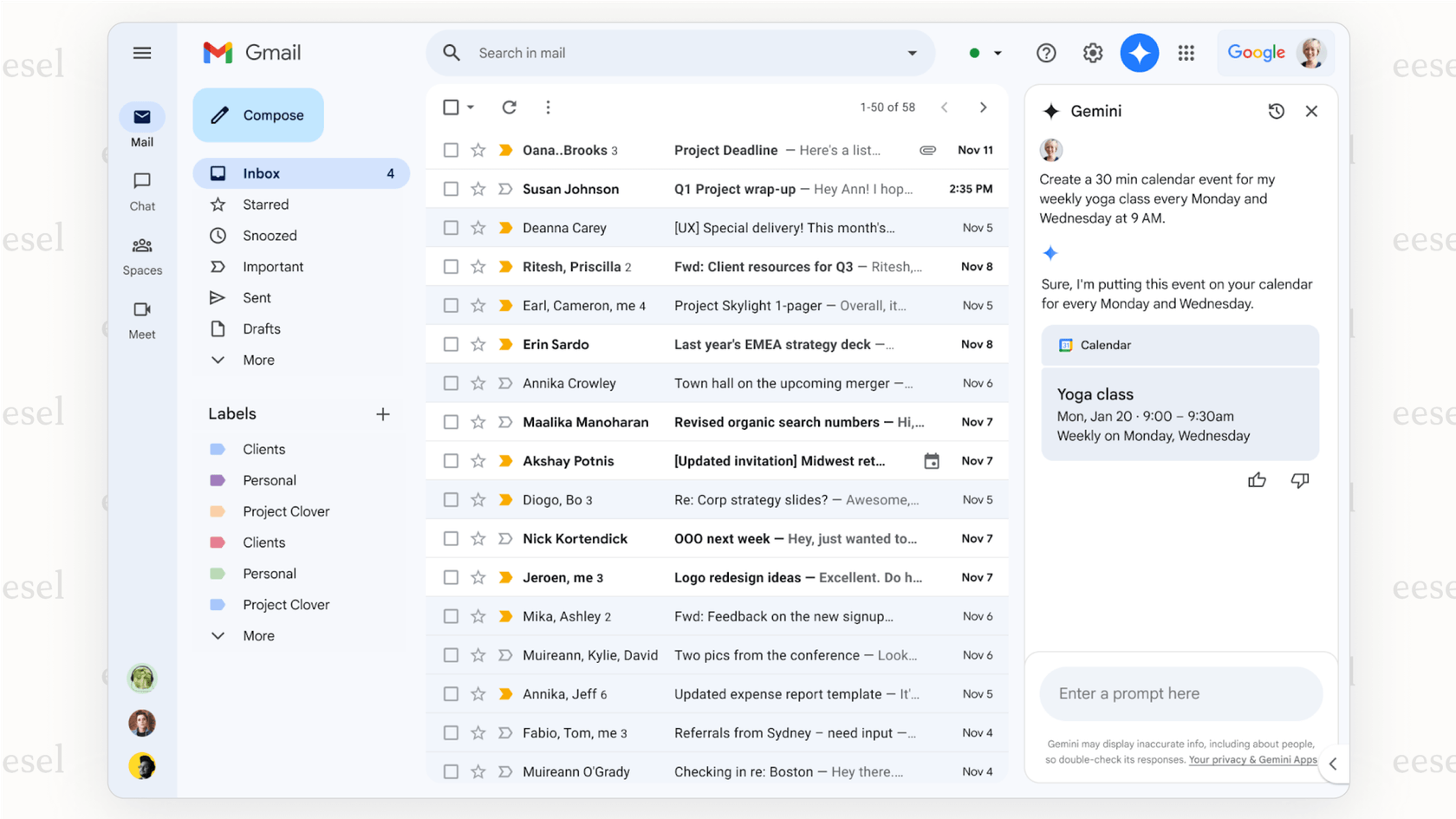
The business blind spot in Gemini vs ChatGPT: Where general AI fails
Trying to use a generic AI for a specialized job like customer support quickly exposes some major cracks. The amazing features we just talked about don't automatically translate into safe, effective, and scalable support.
- They don't know your business. A general AI has never read your internal knowledge base. It can't access your private Confluence pages or the troubleshooting guides in your Google Docs. This leads to generic, unhelpful answers that frustrate customers and force your agents to step in and clean up the mess.
- They're all talk, no action. ChatGPT and Gemini can suggest a solution, but they can't actually do anything in your other systems. They can't resolve a ticket in Zendesk, look up an order status in Shopify, or escalate an urgent issue to the right person in Jira. Your team is still stuck doing all the manual, repetitive clicking.
- There are no safety nets. How do you stop the AI from promising a feature that’s still in development? Or sharing incorrect pricing information it found on an old webpage? With general models, you don't get the fine-tuned controls, escalation rules, and approval workflows that are absolutely essential in a customer-facing environment.
- They're a maintenance headache. Building a custom solution with their APIs isn't a one-and-done task. It requires a significant amount of engineering resources to build and, more importantly, to maintain. You have to keep the integrations working and constantly figure out how to feed the AI new knowledge, which is a full-time job.
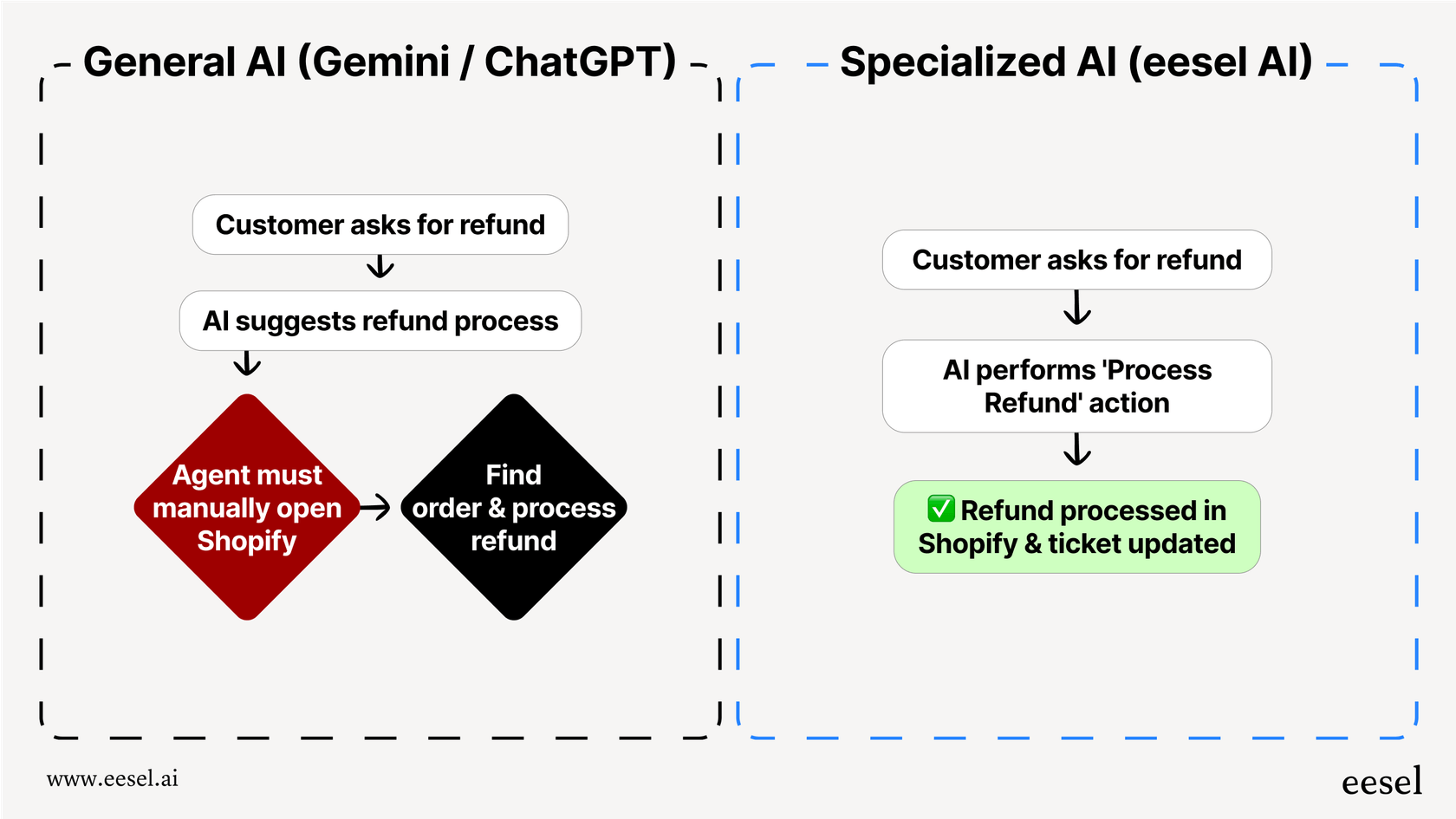
A better way than Gemini vs ChatGPT: Specialized AI for support and ITSM
So if forcing a general tool into your support workflow isn't the answer, what is? Instead, you can use an AI automation platform that was designed from day one for this specific job.
This is exactly why we built eesel AI. It's an AI automation platform that plugs directly into your help desk and learns from your existing knowledge. It harnesses the power of top AI models but applies them in a way that's context-aware, secure, and built to take action for support and IT teams.
Beyond Gemini vs ChatGPT: Training on knowledge that actually matters
Unlike Gemini or ChatGPT, which are trained on the public web, eesel AI connects directly to your company's brain. With simple, one-click integrations, it trains on your private Confluence pages, Google Docs, past support tickets, and help center articles. This means every answer it provides is accurate, on-brand, and based on your own trusted information, not something it scraped from a random forum.
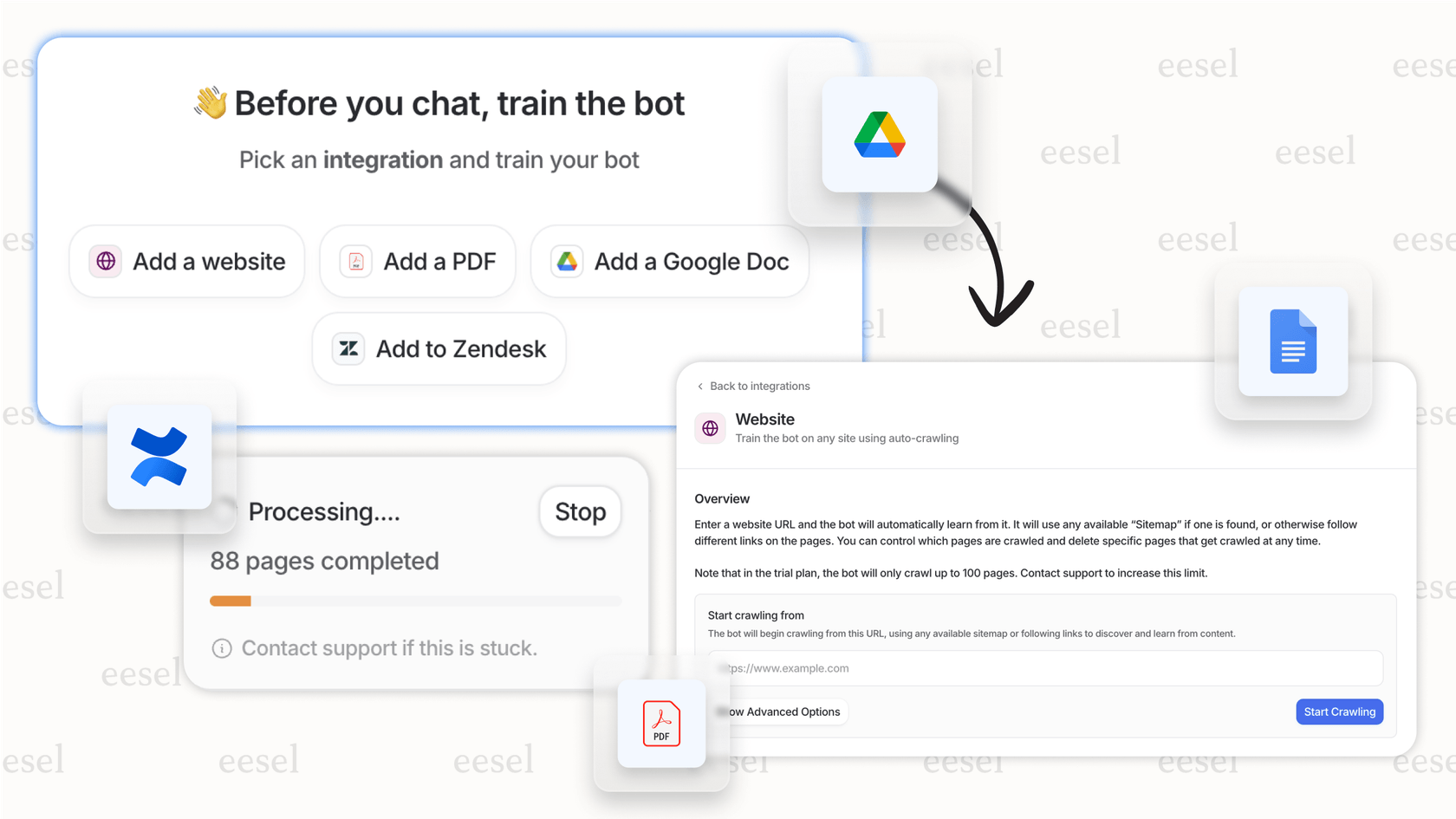
Beyond Gemini vs ChatGPT: Going from conversation to resolution
eesel AI does more than just answer questions. It integrates deeply with help desks like Zendesk and Freshdesk to perform what we call "AI Actions." It can work on the frontline to autonomously handle tasks like tagging tickets, routing issues, looking up live order information from Shopify, and escalating to a human agent based on the rules you set. It turns a customer question into a resolved ticket, freeing up your team for the complex problems where they're needed most.
eesel AI overview.
Beyond Gemini vs ChatGPT: Giving you full control before going live
eesel AI comes with the business-grade controls that general models are missing. You can customize the AI's personality, set strict guardrails on what it can and can't say, and build precise escalation paths using plain English. Best of all, its simulation feature lets you test the AI on your historical tickets. You get a clear report on its accuracy and performance before it ever interacts with a single live customer. It’s the safest way to bring AI into your support workflow.
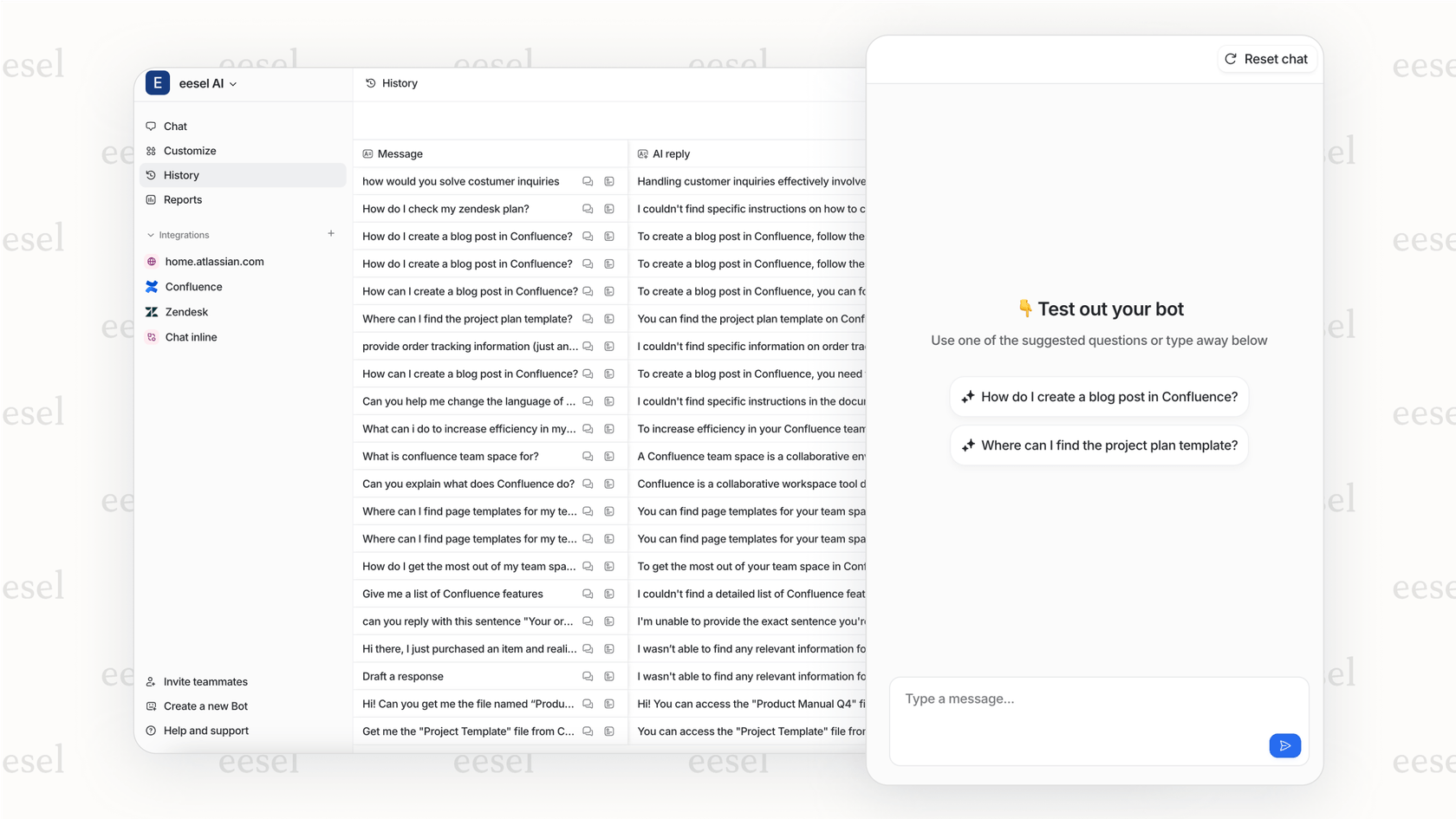
Gemini vs ChatGPT vs. eesel AI: A quick comparison for support teams
| Feature | Gemini / ChatGPT | eesel AI |
|---|---|---|
| Best For | General questions, writing help | Customer Service & ITSM Automation |
| Knowledge Source | The public internet | Your private docs, tickets, and help center |
| Help Desk Integration | Requires custom code via API | Native one-click (Zendesk, Freshdesk, etc.) |
| Can It Take Action? | No (Can't tag, route, or close tickets) | Yes (Fully customizable "AI Actions") |
| Safety & Control | Limited (Depends on your prompts) | Full (Simulation, guardrails, escalation rules) |
| Setup | Needs developers and prompt engineering | Self-serve, no code required |
The Gemini vs ChatGPT verdict: Pick the right tool for the job
Let's be clear: Gemini and ChatGPT are technological marvels. They are fantastic creative partners and incredible tools for general knowledge work. For boosting your personal productivity or brainstorming ideas, they're hard to beat.
However, for the structured, high-stakes environment of customer support or internal IT, they are simply the wrong tool for the job. Using a generic chatbot for support is like using a family sedan for a construction project. It might move a few things, but it’s not built for heavy lifting.
You need a solution that was built from the ground up to integrate with your systems, learn from your private data, and safely get work done. For support and IT automation, a purpose-built platform like eesel AI will deliver better, safer, and more reliable results every time.
Ready to see how an AI platform actually designed for support teams can change how you work? Try eesel AI for free or book a demo with our team to see it in action.
Frequently asked questions
Generally, ChatGPT is favored for creative writing tasks and adopting a specific tone. Gemini often excels at logical reasoning and summarizing real-time information from the web into a fact-based report.
Not necessarily. While Gemini's integration with Google Workspace is a major advantage for productivity within those apps, it doesn't solve the core problem of it not knowing your specific business data for tasks like customer support.
The comparison highlights that neither general-purpose model is ideal for support. Their reliance on public internet data means they can't answer questions about your specific products, policies, or customer issues, which is where a specialized AI excels.
Gemini usually has the edge here due to its direct, real-time integration with Google Search. This allows it to pull in and summarize information about very recent events more reliably than ChatGPT.
That's a huge part of it, but it's also about a lack of business-specific controls. Neither platform comes with built-in safety nets like escalation rules or the ability to test the AI on your past support tickets before it interacts with customers.
For most support and IT teams, these "multimodal" features are not relevant to core tasks. While impressive, generating an image doesn't help resolve a customer's login issue or answer a question about a billing error.
Share this post

Article by
Stevia Putri
Stevia Putri is a marketing generalist at eesel AI, where she helps turn powerful AI tools into stories that resonate. She’s driven by curiosity, clarity, and the human side of technology.



